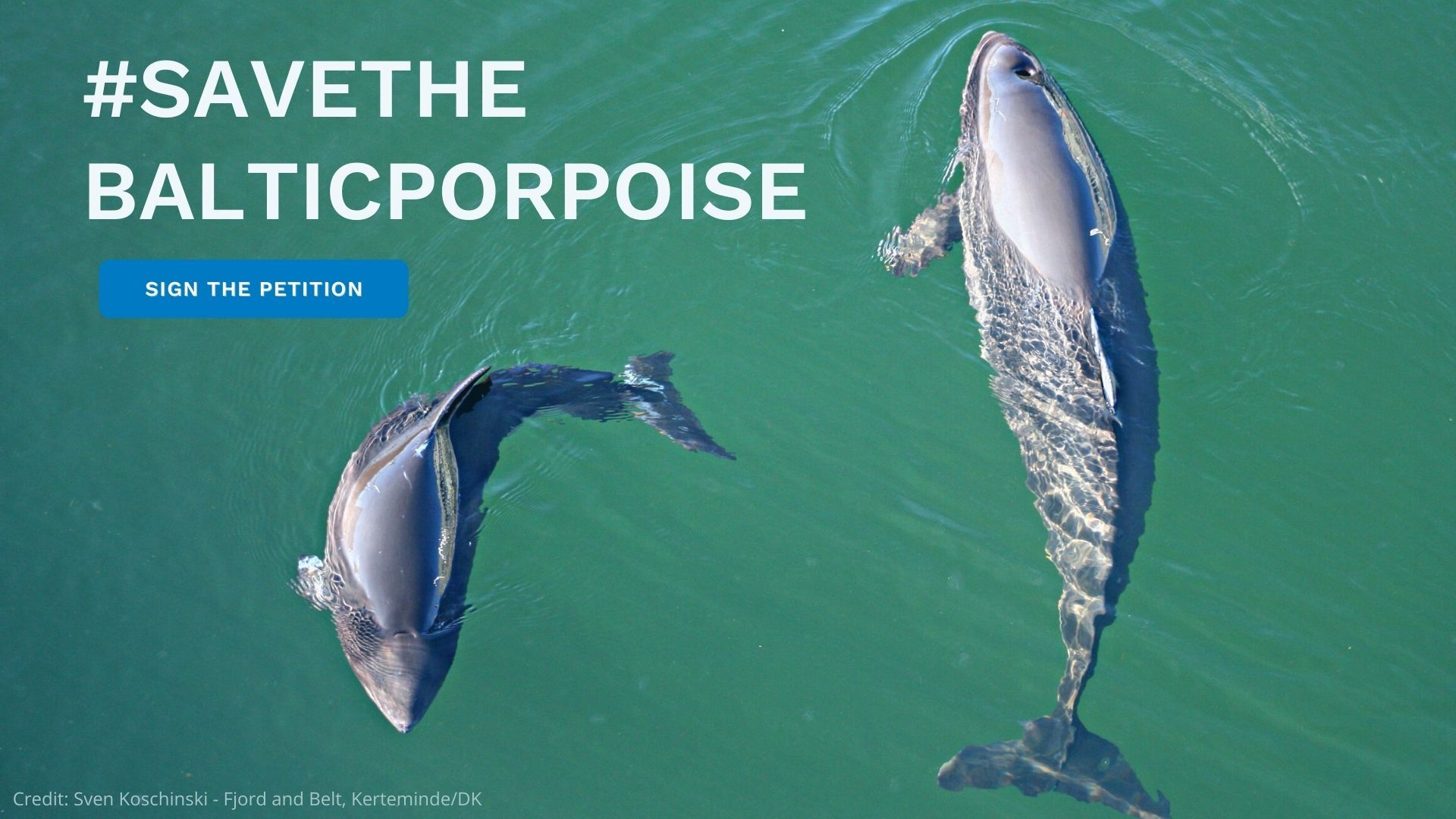New petition launched to save the Baltic harbour porpoise
With only a few hundred individuals left, the Baltic Proper harbour porpoise is critically endangered [1] and needs urgent protection. For this reason, Coalition Clean Baltic (CCB) launched the petition #SaveTheBalticPorpoise [2], addressing the Commissioner for Environment, Oceans and Fisheries Mr Virginijus Sinkevičius, and the Ministers of Environment, Fisheries and Defense in all countries around the Baltic Sea.
April 2022 – The Baltic Proper harbour porpoise, the only whale resident in the Baltic Sea which many don’t even know exists, is close to extinction. The most endangered whale in Europe needs concrete conservation measures to be implemented for its protection. On paper, the Baltic harbour porpoise and its habitat are “highly protected” under European Union law [3], both within and outside Marine Protected Areas (MPAs), but in practice, this has failed to generate effective conservation.
Underwater noise and bycatch [4], along with pollutants and ecosystem changes caused by overfishing and climate change, are the main threats against this cetacean species. Important steps have been taken recently by the European Commission [5], especially in relation to bycatch, but the work is still far from being completed to protect the population throughout its range and save it from extinction.
Therefore, we urge the Baltic countries to work together to:
- Fully protect the harbour porpoise in designated Marine Protected Areas (MPAs) - today many lack proper protection against harmful fishing and underwater noise;
- Stop harbour porpoise bycatch in the entire Baltic Sea - even a single Baltic porpoise dead in a fishing net could have a devastating impact on population survival;
- Investigate the possible coexistence of harbour porpoise nature conservation and military underwater activities - Nature conservation and military defense must work together to protect the Baltic porpoise.
“We have recently seen the first small step towards protecting this critically endangered population, but it is not enough. We need to act strongly in a timely fashion or the population will be reduced to a point of no return”, says Ida Carlén, CCB Biodiversity and Nature Conservation Officer.
This petition is essential to raise attention and awareness to these animals and call on decision makers around the Baltic Sea to put in place concrete and urgent conservation measures. Scientific recommendations [6] and legal requirements are at Baltic Minister’s disposal to change course, setting higher ambitions and taking faster actions to save the Baltic porpoise in time.
Only if we act together we will be able to reach the goal and continue to see porpoises swimming in the Baltic Sea in the coming years.
CONTACT
Ida Carlén, CCB Biodiversity and Nature Conservation Officer:
ida.carlen (at) ccb.se, +46 70 3133067
NOTES
CCB – Coalition Clean Baltic is a politically independent, non-profit association, which unites 23 member organizations and 1 observer, with over 850,000 members in all countries around the Baltic Sea. The main goal of CCB is to promote the protection and improvement of the Baltic Sea environment and its natural resources. More info at www.ccb.se.
[1] All about the Baltic harbour porpoise: https://www.ccb.se/baltic-harbour-porpoise
and IUCN Red List, Phocoena phocoena Baltic Sea subpopulation: https://www.iucnredlist.org/species/17031/98831650
[2] CCB petition to #SaveTheBalticPorpoise: https://you.wemove.eu/campaigns/save-the-baltic-harbour-porpoise and the landing page: https://www.ccb.se/save-the-baltic-porpoise
[3] https://www.ccb.se/bycatch-of-critically-endangered-baltic-sea-harbour-porpoise-must-stop
[4] Bycatch is unintended catch of non-target species, for example marine mammals, in fishing nets. Underwater noise:
https://www.ccb.se/publication/underwater-noise-the-neglected-threat-to-marine-life and
CCB Baltic Talks.
[5] EU Delegated Act (2022): https://www.ccb.se/one-step-in-the-right-direction-to-protect-the-only-whale-in-the-baltic-sea
[6] ICES Advice (2020): https://www.ices.dk/news-and-events/news-archive/news/Pages/EmergencyBycatchMeasures.aspx and the scientific paper (2021): https://www.ccb.se/out-of-sight-out-of-mind-how-conservation-is-failing-european-porpoises


